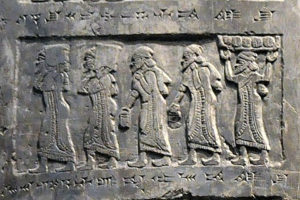Science occupies a special place in American thinking and for some has become a quasi-religion such as mother earth environmentalism and climatism. We are told to follow the science. The media, academia, and the medical profession tell the public to trust and rely on science and the work of scientists for science is objective and impartial. In other words, some would have us believe that “Science” is holy and trumps the Bible as the word of God. Academics, the media, lobbyists, and politicians promote the integrity and reliability of science. But the fact is there is good science and bad science. It certainly shows no resemblance to being holy.
Notice the insightful but troubling “Scientific American retracts anti-Israel opinion piece after criticism” article in the June 26, 2021 issue of The New York Post:
Scientific American found itself taking heat this month after the scholarly, 176-year-old magazine published an opinion piece titled “Health Care Workers Call for Support of Palestinians.” The screechy diatribe accused Israel of “vaccine apartheid” and “war crimes” among other alleged abuses.(Snip)Among the biggest sticking points were the article’s failure to note that the 1993 Oslo Accords tasks the Palestinian Authority to provide healthcare services to its people. The same agreement also prohibits Israel from providing care unless asked by the Palestinian Authority.
Levine 2021
While misinformation passing as fact in the Scientific American article opinion piece titled “Health Care Workers Call for Support of Palestinians” is bad enough, consider the authors. The piece was written by Harvard University research fellows Osaid H. K. Alser and Asmaa Rimawi; Seattle Children’s Hospital Dr. Sabreen Akhter; Mayo Clinic Dr. Nusheen Ameenuddin, Harvard med students Anand Chukka and Qaali Hussein; Arizona trauma surgeon Ariän El-Taher; and Bryan Leyva, an “AfroLatinx Scholar-Activist from the “Dakota Territory.” These are scientists? This is scientific opinion? Where was the brain of the opinion editor? Was he-she-it absent without leave? Taking a coffee break?
In my opinion, this is a prime example of the exploitation science for political purposes. Usually, we find science exploited for personal and commercial purposes, but more often the illusion of science, to sell political, philosophical, and religions ideas as well as services and products. We constantly face a steady stream of this thinking over the Internet, cable and broadcast television. While the politicization of science to realize commercial or political goals is deceptive, it remains an American cultural reality that impacts you and me.
We no longer can believe or trust anything scientists say without examining its validity and intended purpose. In other words, we must critically examine all the parameters including underlying assumptions and motivations. To prove up the point, all we have to do is follow the never-ending conflicting statements of America’s Anthony Stephen Fauci, an American physician-scientist and immunologist who serves as the director of the U.S. National Institute of Allergy and Infectious Diseases (NIAID) and the chief medical advisor to the president.
The public, however, due to the Covid-19 epidemic and the actions taken to deal with it, have become far more informed and wary of the use of science for profit and political advantage. The advent of Covid-19 took away the sacred cover of objectivity of science and scientists. Now we have a view of the politicization of science to reach partisan and economic goals. But it is not the scientific method that is at issue. It is those who deem themselves scientists and how they go about their work. There are ethical, hardworking, nonpoliticized scientists and there are those who are not. In our world we have real science and science falsely so-called.
Except for the naïve, there is is no pretense about the politicization of science and the American higher education system which fosters it. The scientific model, when utilized in an objective, honest manner, has great value. Through science and engineering we have gained a better understanding of the universe and enabled America to become an advanced industrial nation and a superpower. But science has its own set of inherent weaknesses as well as a set of postmodern critics and academicians populating the humanities and social sciences possessed with deconstructionism and poststructuralism ideologies.
Scientists assume that the universe and reality exist in the here and now and can be known through application of the scientific method. This limits science to the natural world and excludes matters of religious faith and values. Ask yourself, what does science seek to prove? Nothing! It is a method of expanding theory, yes theory, by testing credible hypotheses thereby modifying and refining theory.
The epistemological question is, “What can we know and how can we know it?” Christians and Jews argue that there exist other ways of coming to know such as divine revelation. They understand that the word of God, the Bible, defines virtue on the physical as well as on the spiritual plain. The Apostle Paul wrote the young evangelist Timothy that:
…in the last days difficult times will come. For people will be lovers of self, lovers of money, boastful, arrogant, slanderers, disobedient to parents, ungrateful, unholy, unloving, irreconcilable, malicious gossips, without self-control, brutal, haters of good, treacherous, reckless, conceited, lovers of pleasure rather than lovers of God, holding to a form of godliness although they have denied its power; avoid such people as these. For among them are those who ]slip into households and captivate weak women weighed down with sins, led on by various impulses, always learning and never able to come to the knowledge of the truth.
2 Timothy 3:1-7 NASB
We live in these last days. Paul’s description provides an uncomfortable description of our world today. Do you think scientists and educators are immune from this cultural reality? No. Not all who utilize the scientific method or call themselves objective researchers and professors seek altruistic goals. The scientific method and its utility in understanding the physical world is by the testing of plausible, testable hypotheses through the process of falsification. The method has great value. The problem is the people not the method but we must be aware of the shortcomings of both.
We do not live in a perfect world. The biases and motives of researchers and university professors influence the objective application of the scientific method as well as the nature of the academy. Science and scientists, and education and educators, exist as part of the culture in which they work.
The search for Truth is not science nor the goal of contemporary academia. Unfortunately, in the 21st century, the intellectual elite have successfully politicized the academic world. Many universities and colleges, public and private, have deliberately transformed themselves into citadels of deceit and factories of deception by populating their faculties with Marxists, postmodernists, progressives, secularists, social Darwinists, and the like. For an example see the June 30, 2021 USA TODAY article “UNC trustees grant tenure to Nikole Hannah-Jones, creator of The 1619 Project, after weeks of criticism.” The illusion of objectivity is certainly problematic, but even more troubling is the decline of even the search for facts, let alone seeking Truth, in the American academy.
When we are told to “follow the science” and to “trust science” beware. Below are known biases in scientific objectivity and increasingly in the education industry itself:
- The nature of knowledge and its historical embellishments (di Leonardo 1991).
- The political, intellectual, and emotional baggage brought by academics, researchers, and their supervisors and funders to reach social, religious, and partisan ends. While one would hope that such biases would have minimal impact they are far more pervasive than the education and scientific establishment would like to admit. The challenge is not education or science it is the the political nature and behavior of educators and scientists. The politicization of science by the leftists with their incessant call for “Follow the Science,” meaning their “science” or more properly pseudoscience, became evident to the American general public in the COVID-19 pandemic crisis of 2020. In the American Thinker, P. F. Whalen stated it well, “The problem is scientists, and to be more accurate, scientists who lie to us and are politically motivated while pretending to be otherwise” (Science can be Great… Scientists? That Depends).
- Concealment, manipulation, and falsification of research data to reach desired or preconceived conclusions for personal ends (usually to achieve funding or maintain monetary support, donors’ agendas, and academic prestige), political change, and/or economic goals (such as the redistribution of wealth from the prosperous to the impoverished as evidenced in the global warming scam advanced by Marxists, socialists and political progressives).
- Self-fulfilled prophecy dealing with data and its collection i.e., the relationship between the observer and the people to be studied (Conkey and Williams 1993).
- Gender-based inferences about males and females arising from an androcentric bias inherent in male-dominated archaeology (Conkey 1991, Conkey and Williams 1993).
- The distance to be bridged between evidence and hypothesis warrants questioning since the assumption of cross-species conformity and the adoption of animal modeling is highly questionable when applied to early human beings (Longino and Doell 1983).
- The “content-stripping” attributes of the scientific research paradigm lying in the assumption that general laws must be “context independent, free of specific constraints of any particular context and therefore applicable to all” although human action and experience remain context-dependent (Mishler 1979:2).
- Other factors a researcher brings to the research situation. Concerning a shift in applied anthropology practice von Willigen writes “certain anthropologists came to feel that social scientists cannot separate their work from real-world values, and that to do so creates a dangerous illusion of true objectivity” (von Willigen 1993:28). For a good contemporary example read Funders, Politics and Bias by Hershel Shanks in the Jan/Feb 2009 issue of the Biblical Archaeology Review 36.1.
So, there is good science and bad science. But worst of all is politicized or manipulated, deceptive propaganda passing as science. My advice is to control the door of your mind. Do not be fooled, as Tucker Carlson words it, by “partisan politics posing as science.” Guard carefully what you see and hear and accept as correct. Do not let yourself be duped or gaslighted. Whether it is the media, education, theology, or the scientific world, get the facts before making such ideas part of your life.
In today’s world, when someone tells you that “science tells us…” there is high probability it does not. You have to look at all the parameters including underlying assumptions and motivations. Be informed, not manipulated, especially when it comes to character, values, and the word of God. The Apostle Paul said, “All Scripture is inspired by God and beneficial for teaching, for rebuke, for correction, for training in righteousness; so that the man or woman of God may be fully capable, equipped for every good work” (2 Timothy 3:16-17 NASB).



Recent Comments